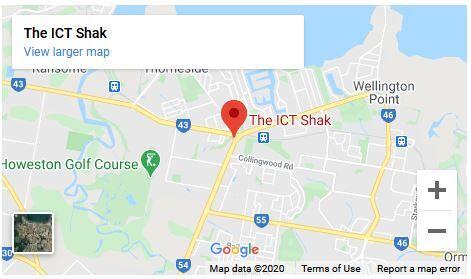Communication is the cornerstone of successful customer engagement. How a business communicates with its customers can make or break the relationship. In today's fast-paced world, it is crucial to provide clear and effective communication to ensure customer satisfaction.
How to Communicate Effectively with Customers
Tips for To Answer Customers
To communicate effectively with customers, businesses need to actively listen to their needs and concerns. By acknowledging and addressing customer feedback, service providers can improve their offerings. Additionally, providing timely responses to inquiries and issues is key to building trust with customers. Talk to them in a manner that is not only easy to remember but also includes facts to support your information.
Benefits of Clear Communication
One of the advantages of effective communication is that it not only enhances customer satisfaction but also fosters customer loyalty. By establishing a clear line of communication, businesses can better understand their customers' preferences and tailor their offerings accordingly. This leads to increased customer retention and positive word-of-mouth referrals.
Challenges in Customer Communication
Despite its importance, customer communication can pose various challenges. One common issue is managing the volume of incoming inquiries efficiently. Additionally, maintaining consistent messaging across different communication channels can be tough, especially as businesses grow and expand. It is pivotal to keep up with the pace of communication.
Using Tools for Customer Communication
Using Email as a Communication Tool
Email remains a popular communication tool for businesses to interact with customers. It allows for the quick dissemination of information and is a cost-effective option for reaching a broad audience. Businesses can use email to provide updates, promotions, and personalised messages to their customers.
Utilising Phone Systems for Customer Service
Phone systems play a crucial role in customer service, offering a direct line of communication between businesses and their customers. Providing a clear and easily accessible phone number for customers to call ensures that they can reach out for assistance or inquiries. This direct interaction enhances customer satisfaction and builds trust.
Enhancing Mobile Communication Strategies
In today's mobile-centric world, businesses must enhance their mobile communication strategies to reach customers on the go. You receive messages every day. Mobile apps, SMS messaging, and responsive websites help businesses connect with their audience wherever they are. By optimising mobile communication, businesses can provide a seamless customer experience.
Structuring Messages for Customer Engagement
Key Components of Effective Messages
Effective messages should be clear, concise, and relevant to the customer's needs. Businesses should focus on providing valuable information and offer solutions to customer queries. By structuring messages in a customer-centric manner, businesses can enhance engagement and drive action. Always start the message with a brief introduction about the brand or offer.
How to Promote Consistent Messaging
Consistency is key when it comes to messaging. Businesses should ensure that their brand voice and tone remain consistent across all communication channels. This helps in building brand recognition and reinforces the business's values and offerings in the minds of customers.
Encouraging Audience Engagement through Messages
Engaging messages are more likely to capture the attention of the audience. Businesses should encourage feedback, questions, and interactions from customers to foster engagement. By creating a dialogue with customers through messages, businesses can strengthen relationships and build a loyal customer base.
Training Staff for Improved Communication
Involve Employees in Task Understanding Clarifications
Employee training plays a critical role in ensuring effective customer communication. Businesses should provide training on active listening, conflict resolution, and interpersonal skills to empower staff members to communicate effectively with customers. Ongoing training programs help employees stay updated on industry best practices.
Significance of Staff Training in Customer Engagement
Well-trained staff are better equipped to handle customer inquiries and provide solutions efficiently. By investing in staff training, businesses can enhance the overall customer experience and differentiate themselves from competitors. Trained employees can represent the business effectively and leave a positive impression on customers.
Managing Customer Communication Volume through Staff Training
Effective staff training enables businesses to manage the volume of customer communications more efficiently. Well-trained staff members can respond to customer inquiries promptly and accurately, leading to faster issue resolutions. This not only improves customer satisfaction but also streamlines business operations.
The Impact of Enhanced Communication on Business Growth
Driving Growth through Improved Communication
Enhanced communication strategies can drive business growth by attracting new customers and retaining existing ones. Clear and effective communication builds trust and credibility, which are essential for long-term business success. By listening to customer feedback and adapting communication strategies, businesses can drive growth and profitability.
Increasing Customer Awareness through Effective Communication
Effective communication increases customer awareness about a business's products, services, and values. By conveying the right messages to the right audience, businesses can ensure that customers are well-informed and engaged. This heightened awareness leads to increased brand recognition and customer loyalty.
Measuring the Impact of Communication on Business Success
Businesses can measure the impact of their communication strategies through various metrics such as customer satisfaction scores, retention rates and revenue growth. By analysing these key performance indicators, businesses can gauge the effectiveness of their communication efforts and make data-driven decisions to further enhance customer engagement and drive business success.




